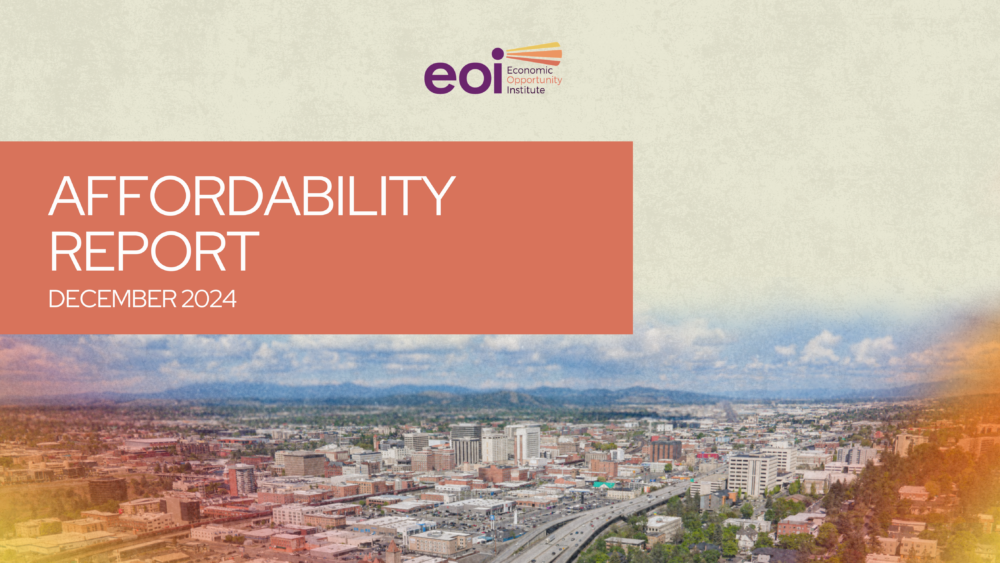Affordability Report
Progressive revenue can increase affordability for working families.
Public programs and services – from health care and child care to community colleges – function better and can do more public good when fully funded. As a result, working families’ lives become more manageable, and their costs decrease. To fully fund these programs and services that are critical to household security and stability, we cannot continue to rely on our out-of-date, regressive tax code, which over-taxes poor and middle-income people while letting those with the dollars to spare off the hook.
Instead, lawmakers should raise progressive revenue by asking profitable corporations, high earners, and wealthy residents to pay more of what they owe.
This report will briefly discuss Washington state’s current tax code, define ‘affordability’ and identify affordability metrics, and explore changes to the costs of living in Washington. It seeks to answer the question: What public investments will improve the everyday lives of Washingtonians and offer access to real opportunities to thrive? This report will conclude with information about how new progressive revenue can and should fund the existing and possible investment in our public good.
Read the full report.
Washington has, second only to Florida, the most regressive tax code in the country. Because of our state’s over-reliance on sales and property taxes and our lack of a progressive income tax, we over-tax low- and middle-income working families and subsidize the wealthy and large, profitable corporations.
Not only is it unfair, but the tax code also sets up our state legislature and local governments for chronic deficits. The money flowing in from the sales tax has not increased proportionally to the growth in our state’s economy and population.
Critically, the Center for Women’s Welfare’s data shows that from 2001 through 2021, the amount of money families need to get by has increased faster than Washington’s median earnings: up to 2.5 times in Clark and King counties.
When broken down by race, their data show a stark picture of the persistent racial wealth and poverty gap, with 45% of Black and 24% of White households earning incomes below the standard in 2021.
Existing regressive revenue streams, such as sales and property tax, are both inequitable and inadequate. Relying on these funding sources to fund the programs, services, and jobs outlined in this report will ultimately be a failing strategy from two sides.
Progressive revenue is critical to affordability. This session, 2025, lawmakers will have multiple opportunities to pass progressive revenue that can start bringing in revenue in the short and medium terms. Policies to tax high earners, high-wealth individuals, and profitable, large corporations will be on the table. These policies will provide sustainable and adequate funding sources for the public good and make the system more equitable by asking those with the most to pay more of what they owe.

